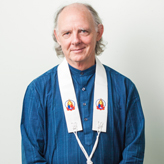Tue, 23 November 2010
|
Thu, 11 November 2010
The Buddha’s analysis takes the form of a nidana chain beginning with actual experience, that when we begin to proliferate or move away from facts to interpretations inevitably leads us into a secondary reality that easily leads to conflict with others, who have different versions of reality. A brilliant talk, covering ground rapidly but concisely bring together the Buddha’s wisdom both in terms of transforming society and how we work within meditation, in fact we need to employ the same tools in both situations. |
Sat, 6 November 2010
Jinananda discusses the fact that even Buddhists, who are supposedly always kind and helpful, are not always so, even in stories from the Pali Canon. He reminds us, however, that this is normal, and that relating skilfully to each other is a truly immense challenge – difficult for even the most experienced Buddhists and not to be taken lightly. Talk given at the West London Buddhist Center |
Free Buddhist Audio

Categories
DharmabytesFree Buddhist Audio
Podcasts
Buddhism
FBA Podcast
Archives
AprilMarch
February
January
December
November
October
September
August
July
June
May
April
March
February
January
December
November
October
September
August
July
June
May
April
March
February
January
December
November
October
September
August
July
June
May
April
March
February
January
December
November
October
September
August
July
June
May
April
March
February
January
December
November
October
September
August
July
June
May
April
March
February
January
December
November
June
May
April
March
February
January
December
August
June
April
February
January
December
October
July
June
May
April
March
February
January
December
November
October
September
August
July
June
May
April
March
February
January
December
November
October
September
August
July
June
May
April
March
February
January
December
November
October
September
August
July
June
May
April
March
February
January
December
November
October
September
August
July
June
May
April
March
February
January
December
November
October
September
August
July
June
May
April
March
February
January
December
November
October
September
August
June
May
September
May
January
September
June
May
January
December
November
September
July
June
April
February
January
December
November
October
September
July
May
April
March
February
January
November
September
August
July
| S | M | T | W | T | F | S |
|---|---|---|---|---|---|---|
| 1 | 2 | 3 | 4 | 5 | 6 | |
| 7 | 8 | 9 | 10 | 11 | 12 | 13 |
| 14 | 15 | 16 | 17 | 18 | 19 | 20 |
| 21 | 22 | 23 | 24 | 25 | 26 | 27 |
| 28 | 29 | 30 | ||||
Syndication

 In
In 

